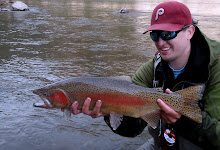via USAToday
Three U.S. graduate students arrested last month for suspected poaching and visa violations could be stranded in a remote corner of Brazil for months as their case goes through the courts, their lawyer says.continued
University of Arizona geoscientists Michael McGlue, 31, and Mark Trees, 48, and University of Minnesota-Duluth student Kelly Wendt, 26, were arrested by federal police June 16 while working on a climate change project with the University of the State of Sao Paulo. The Americans spent eight nights in jail before being released on bail June 26. Police confiscated their passports as well as computers, research equipment, cellphones and cash.
Roberto Lins, the men's Brazilian lawyer, says the students may not go before a judge for six months and could face up to five years in prison if convicted of illegally prospecting for minerals.
The researchers "had permission, but everything was very informal," Lins said. They did not have "written permission" to do research in the Pantanal region, one of the world's largest freshwater wetlands.
Foreign poachers have long stolen minerals, plants and wildlife from Brazil's Pantanal region, says Larry Birns of the Council on Hemispheric Affairs. At a time of heightened nationalism, "trafficking commodities is a very sensitive matter," he said.
The men entered the country on tourist visas. Researchers are required to obtain scientific visas.
In a phone interview from their hotel room in Corumba, the remote southwest city where they are staying, the men said they were preparing their defense, which includes letters of support from Brazilian scientific groups. The University of Arizona is paying their expenses.
you can help


0 comments:
Post a Comment